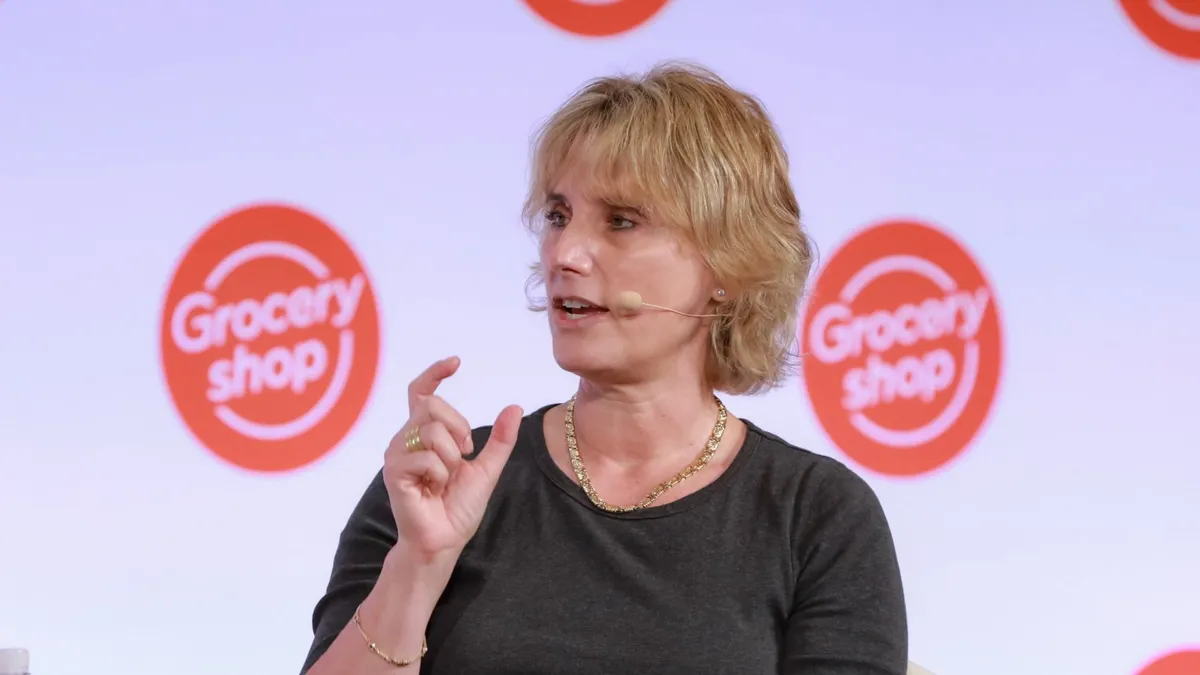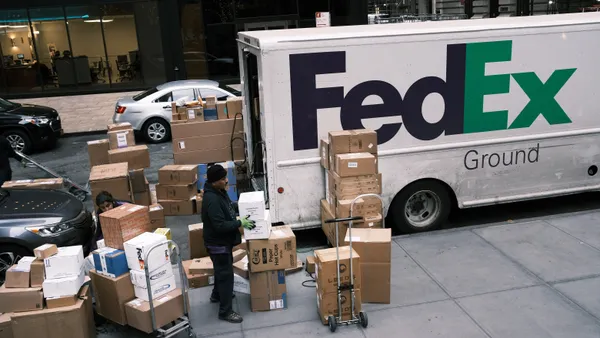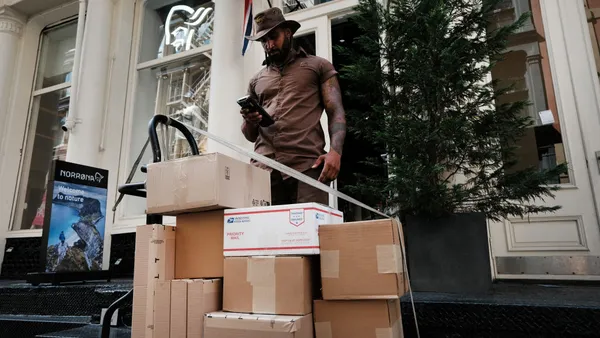LAS VEGAS, Nev. — Though crowd-sourced delivery is often painted as a result of the kind of on-demand culture that lightning-fast fulfillment operations and technologies are enabling, Deliv founder and CEO Daphne Carmeli sees a value proposition for both consumer and businesses elsewhere.
"Predictability trumps speed," she said at GroceryShop in Las Vegas Sunday.
Deliv, she explained, is not a consumer-facing service, but a 'back-end service" — an "asset-free UPS."
Deliv, which runs on gig workers for the most part, is not an on-demand provider — it's a "scheduled delivery provider," said Carmeli. The company's central supposition is that getting an item to a customer when they expect it is more important than getting it to them as fast as possible. For businesses too, Deliv's model promises lean, efficient labor and fewer surprises.
With more than $80 million in venture funding, operations in 1,500 cities and 5,000 customers across grocery, pharmacy and retail, according to Carmeli, predictability is so far working for the Silicon Valley startup.
The growth in both drivers on the road and dollars invested in crowd-sourced delivery solutions such as Deliv, Roadie and Instacart demonstrate retailers see the value in outsourcing last-mile deliveries in order to fast-track omnichannel growth. But that doesn't mean it is easy to do so profitably.
"Unit economics are the be all end all in a company's success," said the CEO.
In Las Vegas, Carmeli listed four key drivers of delivery cost. "They're all related either directly or indirectly to time. The more time it's taking you, the more time it's costing you."
Volume
"The more volume you have when you're picking up — the more volume you bring to same location ... the more you do that, the better it is."
Carmeli offered the example of a taxi or an airport shuttle. Shuttles batch deliveries (people) in order to lower the cost to deliver each person to their destination. Retailers and grocers must do the same in order to make deliveries and maintain profit margins — a particular challenge for grocery delivery since orders tend to be large and take up space while also often requiring temperature control.
Distance
"Ten miles is going to cost you more than five miles because it just takes longer," said Carmeli. When creating routes, she said, total delivery miles must come into play, but also miles per stop.
"You wanna create a route that is as tightly, densely optimized as possible," she added. This can be tough as orders come in in real-time, but it is essential to keeping delivery costs down.
Service Level Agreement (SLA)
"What's the promise you're giving to the customer?" the CEO asked. Delivering on this promise is of the utmost importance, Carmeli said, implying this is where the trend to increase delivery speeds at all costs can lead to unhappy customers on top of dismal unit economics.
Predictability
"Whenever there is unpredictability or delays, that takes time and that costs money," said Carmeli. This is where setting realistic customer expectations becomes good for customer retention and essential for profitable operations. Supply chains are rife with expectations and unforeseen impediments. Minimizing these impediments is essential.
Groceries especially, said Carmeli, "have all of those things going in the wrong direction." Perishability necessitates shorter delivery windows and tighter SLAs. Deliv doesn't pick or pack orders, but Carmeli said she had heard of these elements of grocery delivery costing upwards of $12 for each order in labor and other aggregate costs.
Furthermore, grocery margins are thin and the average order size doesn't permit as much order batching or "pooling" into cost-effective routes. Carmeli's contention is Deliv does the work to find every efficiency once an order has left the store, but the room for added cost before Deliv picks up the items is just as important. For that, grocers need to look to other technologies such as automated picking and even "dark stores" without any consumer access to bring equalize efficiency between picking, pick-up and delivery.














